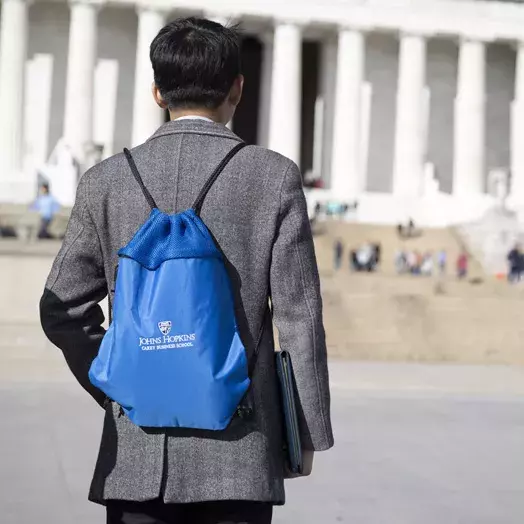
Introverts’ Expectations of Social Interactions Are More Pessimistic Than What They Experience
The networking event is a time-honored ritual in the business world. It’s a place where buyers and sellers, employers and job seekers, innovators and investors, get to know one another in the hopes of long-term mutual benefit.
But why do some people relish — even thrive on — such intensely social settings, while others dread them as if they were torture?
The Johns Hopkins Carey Business School’s Erik Helzer, an assistant professor of management and organization and an expert in social psychology, wanted to know the answer to that question, which has important implications for people throughout the business world. Helzer and a team of colleagues recently published a study examining this important milieu and its psychological implications for both introverts and extroverts.
In the business world, Helzer says, it is accepted that socializing is an important skill, a key to success in work and in life.
“We’re told, ‘You ought to do this. It will help your career,’” Helzer says. “But that doesn’t mean we look forward to it. In fact, many people do not.”
In their study, the research team asked business students to spend 30 minutes interacting with strangers in a cocktail party environment. When asked before socializing how they felt about the prospect, many people in the study said they expected the experience to be mentally draining and to feel worse, not better, after the interaction. This was particularly true for more introverted individuals, who harbored the most negative expectations for the experience.
Helzer and team then compared how people expected to feel against how they actually felt after the interaction. Helzer says it was not surprising to learn that extroverts experience a mood boost following such social interactions. In the study, more extroverted individuals experienced significant increases in positive feelings after socializing. But, Helzer notes that many introverts experienced a similar boost in positive feeling, too. In fact, almost 40 percent of all participants went into the social interaction fearing they would feel worse after socializing, but instead, wound up feeling significantly better than they were feeling at the start of the study.
The research team then took things a step further. They had participants rate each other on how socially skilled they perceived each of their interaction partners to be. Perhaps not surprisingly, extroverts were rated as more socially skilled overall. What was surprising, however, was that skill gap between extroverts and introverts was greatly reduced among introverts who feared being evaluated negatively. Helzer surmises that these otherwise self-conscious folks are compensating for their shyness and “acting” extroverted.
“Their fear of negative evaluation may be fueling a desire to overcompensate in order to make a positive impression on their interaction partners,” he says.
The ability to socialize has important implications for potential employers, partners, and investors who are trying to learn if they can trust, like and work beside someone. The takeaway for would-be socializers, according to Helzer, is that our expectations for these interactions can belie how social interactions actually affect us in the moment.
“More often than not,” he says, “these interactions will go more positively than most people expect.”
The paper, “Pessimistic expectations and poorer experiences: The role of (low) extraversion in anticipated and experienced enjoyment of social interaction,” was published in PLOS One. In addition to Helzer, the co-authors are study leader Korrina Duffy, a postdoctoral fellow at the National Cancer Institute; Duke University professors Tanya Chartrand and Rick Hoyle of Duke University; and corporate consumer psychologist Jun Fukukura Helzer.


